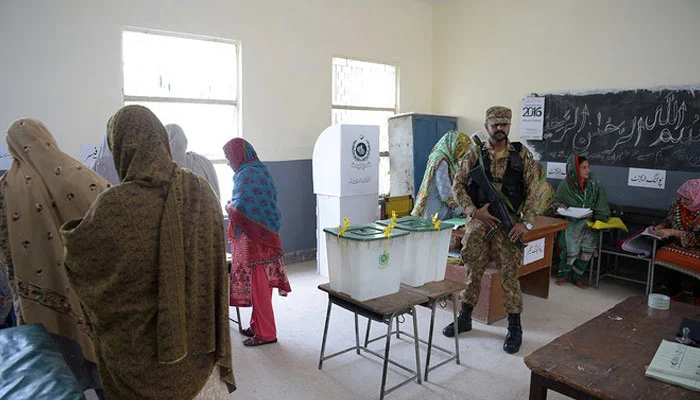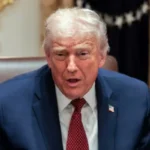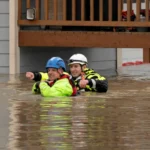There would be no security troops inside the polling booths, as interim Sindh Home Minister Brigadier (retd) Haris Nawaz stated on Wednesday, following a formal sanction for the army to be deployed for statewide vote security next month.
The caretaker minister explained to reporters in Karachi that “no security official will enter the room where polling is taking place, however Rangers personnel can be summoned inside the booth if needed.”
According to Haris, the administrations were merely providing support to the election commission, which has the primary duty of organizing and conducting general elections.
“The display of weapons during elections is strictly prohibited. While female health workers will handle election-related tasks at the women’s polling places, police contingents will also be stationed outside the polling places.
He asked the higher authorities to plan a failsafe system to prevent any issues during the election.
Regarding the costs associated with security, Haris stated that the province government had previously provided funding to the police, Rangers, and schools, among other law enforcement organizations (LEAs), therefore there was no shortage of financial resources for the respective departments.
Ahead of the elections on February 8, he went into further detail on the amount of extremely sensitive areas throughout the province.
There are almost 12,000 sensitive and extremely sensitive polling places in addition to 5,954 regular polling places. For election security, a total of 1,984 Pakistan Army personnel and 122,000 police officers would be sent out.
In response to a query, he acknowledged that there were security risks to the authorities while the elections were being conducted, but that every effort was being made to preserve the status quo of law and order.
He said, “In addition, services from the forest departments, Frontier Corps (FC), lady health workers, and anti-corruption agencies will be acquired.”
The home minister for Sindh stated that every effort was being made by the administration to hold fair and transparent elections.
In addition, he declared that polling places without energy connections will receive solar systems in addition to cameras installed for close observation of the voting process.
The caretaker federal cabinet had adopted a summary the day before that called for the deployment of civil armed forces troops and the Pakistan Army to support the free operation of civil institutions.
According to a statement from the Prime Minister’s Office, “the troops will perform duties in sensitive constituencies and polling stations and will also act as a rapid response force.”
The poll Commission of Pakistan (ECP), however, released its “Code of Conduct for Security Personnel” on Friday, cautioning them against bias while performing poll duty in light of prior criticism.
The LEAs are instructed to carry out their tasks in compliance with the law and within the parameters of the police mandate by the ECP’s protocol, which does not include the Armed Forces or Civil Armed Forces.
On February 8, Prime Minister Anwaar-ul-Haq Kakar established a high-level committee to supervise election security due to worries about the state of law and order.







